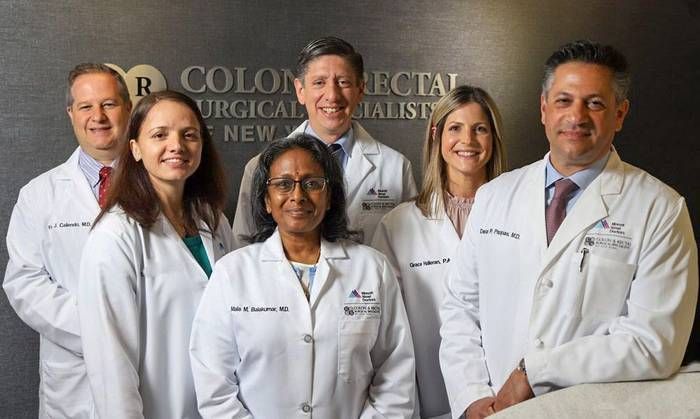
BY DEAN PAPPAS M.D.
Following rectal prolapse, surgery may be needed to address the problem. The results of these surgical procedures are quite successful so long as patients follow our instructions for post-op care. This is why the entire team at Colon & Rectal Surgical Specialists of New York take time explaining healing and recovery after women’s rectal prolapse surgery and men’s rectal prolapse repair.
Overall, recovery from prolapse repair will take about six weeks, though the exact time will depend on the nature and extent of your surgery. Below is a general overview of the recovery process and what you can expect. Our Garden City, NY team can discuss these matters with you in greater detail during the consultation process.
Taking Time Off from Work
Given the nature of the prolapse repair surgery, it’s imperative that patients take some time off from work. A few weeks may be necessary deepening on the nature of the patient’s job and the duties that are expected of them. This can be discussed during the consultation process. Upon returning to work, you may need to modify some of your duties or request reasonable accommodations from your employer as you are recovering, so please keep that in mind.
Common Side Effects After Surgery
Following prolapse repair surgery, common side effects may include:
- Soreness
- Swelling
- Bruising
- Minor bleeding
Your surgeon will be able to recommend pain killers and over-the-counter pain medications that can help minimize post-op discomfort. In addition, recommendations will be made regarding sleeping and sitting positions to help reduce soreness as you are healing.
Use of Stool Softeners
Following surgery, patients will be told to use stool softeners to help avoid excessive straining while moving their bowels. This helps aid in healing, and prevents re-injury of the rectum after it has been repaired. The use of stool softeners will also be essential for pain management in the first days of recovery.
Adjusting Your Diet to Aid in Recovery
In addition to using stool softeners, patients will also be asked to alter their diet to prevent constipation and straining when moving their bowels. Patients will typically start with a clear liquids diet, transitioning to soft foods and eventually solid foods over the course of a few weeks. High-fiber diets will be ideal during this healing period. Pay attention to all dietary recommendations made by your surgeon.
Drink Lots of Fluids
In order to help keep stools soft and prevent difficult bowel movements, it’s important that patients drink plenty of fluids and stay well hydrated as they recover. Stick to water and avoid sugary beverages, alcohol, and soft drinks. This is just good advice in general, and an important part of good tip for digestive health and overall wellness.
Avoid Heavy Lifting and Strenuous Activity
To prevent re-injury and other complications, patients should avoid heavy lifting and all sots of strenuous activity for a few weeks. This includes cardio, squatting, and bending at the waist. Your surgeon will be able to provide you with guidelines on when you can return to these activities.
Attend Follow-up Visits as Scheduled
Multiple follow-up visits with your surgeon will occur during the recovery process. This is to help monitor your healing and make sure that you do not suffer from any kinds of health problems while you are getting well. Be sure to attend all of these visits, and to contact your surgeon any time you have an urgent concern.
Learn More About Colorectal Surgery
For more information about recovering from colorectal surgery, be sure to contact our team of doctors and surgeons. Colon & Rectal Surgical Specialists of New York is here to help. You can reach our primary Long Island office located in Garden City by phone at (516) 844-0248.

